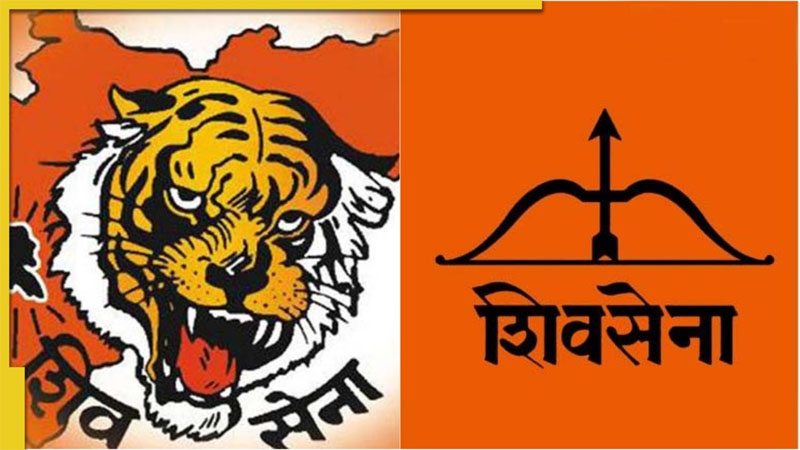MUMBAI, Sep 25: What has politics in Maharashtra got to do with Mumbai’s Shivaji Park? A lot, historians and political analysts say.
Popularly known for being a cradle of Indian cricket – this is where batting legend Sachin Tendulkar cut his teeth in the game, the sprawling playground in the heart of Mumbai has been a rallying centre for many social and political movements that have shaped the state’s history over the past century.
For Shiv Sena, though, it has a special place. Its founder late Bal Thackeray held his first political rally here on the day of Dussehra 56 years ago, an event that would recur every year thereafter. Thackeray would use these rallies to spell out the party’s political agenda from time to time, hit out at his rivals and offer motivational speeches to his followers, said veteran Sena leader and MP Gajanan Kirtikar.
When Thackeray died in 2012, he was cremated here. Sena workers call Shivaji Park ‘Shiva-tirtha,’ or a holy place, that now houses a memorial to Bal Thackeray.
That is why Shivaji Park turned into a new battleground between the two warring factions of the Shiv Sena, led respectively by Maharashtra’s current chief minister, Eknath Shinde and his predecessor Uddhav Thackeray who bowed out of office in June, after the former staged a rebellion. Shinde walked with an overwhelming majority of MLAs to form the new Government in alliance with the Bharatiya Janata Party.
Both sides are since fighting a bitter court battle over who has the right to the legacy of Shiv Sena and its founder leader Bal Thackeray. That fight turned uglier earlier this month when both sides decided to hold Dussehra rallies in Shivaji Park.
Fearing a possible law and order problem, the Brihanmumbai Municipal Corporation (BMC) denied permission to both factions, but on Friday the Mumbai High Court granted the Thackeray group permission for the rally. Thackeray’s supporters erupted in joy, as they saw the court’s ruling as vindicating their claim to being the real Shiv Sena.
“Bal Thackeray held people in thrall at his Dussehra rallies at Shivaji Park year after year for five decades. Later, Uddhav ji guided us from there as party chief. So it is naturally our right (to hold the rally there),” said Arvind Sawant, a spokesperson for the Uddhav-led Sena faction.
Before his death, an ailing Thackeray held a virtual rally at Shivaji Park to urge his party workers to support his son Uddhav and grandson Aaditya, Sawant added.
The playground and the residential clusters around it have a storied past. According to author Shanta Gokhale, who has written a book “Shivaji Park: Dadar 28: History, Places, People”, the Park was opened to the public in 1925. It was first called the Mahim Park. In 1927, the tercentenary year of iconic Maratha king Shivaji’s birth, it was renamed as Shivaji Park following popular demand.
Since then, it has witnessed many landmark events in Maharashtra’s political history, including the Samyukta Maharashtra movement which led to the birth of the state in 1960. How did it become central to the Shiv Sena’s politics?
This is the place from where Shiv Sena pramukh (chief) Balasaheb Thackeray spelled out the party’s agenda, like the issue of Marathi manoos, Hindutva, the party’s position on various issues; and also launched searing attacks on his opponents and the state and central governments, Sena leader Kirtikar told PTI.
The memorial of freedom fighter and Hindutva ideologue Vinayak Damodar Savarkar too is located near the Park. Savarkar lived in a bungalow in the same area.
The Thackeray family too resided in the same area before shifting to ‘Matoshree’ in suburban Bandra. The Sena Bhavan, the party’s headquarters, is also located close to the Park.
Sena veteran and former Maharashtra Chief Minister Manohar Joshi, in his book “Shiv Sena Kal, Aaj ani Udya” (Shiv Sena – Yesterday, Today and Tomorrow), has narrated how the first-ever rally of the party was organised at Shivaji Park.
On October 23, 1966, Marmik, a cartoon-centric magazine edited by Bal Thackeray, published a note that there would be a rally at Shivaji Park at 5.30 pm on October 30 to observe Dussehra – the festival Hindus hold to celebrate the victory of the good over evil. Thackeray was already using his pen and paintbrush to fulminate against what he perceived as injustices suffered by sons of the soil in Mumbai.
Some people suggested that the rally be held in an auditorium as they were not sure how much crowd it would attract.
According to veteran Marathi journalist Prakash Akolkar, even Bal Thackeray was unsure about the response.
But the rally turned out to be a huge success and, thereafter, there was no looking back for Bal Thackeray, Akolkar wrote.
When the Sena came to power in the state for the first time (in alliance with the BJP) in 1995, Manohar Joshi took oath as chief minister not at Raj Bhavan, but at a grand ceremony at Shivaji Park. In 2019, Uddhav Thackeray was also sworn in as chief minister at the same venue.
When the controversy over which Sena faction should be allowed to hold the rally at Shivaji Park this Dussehra broke out, Nationalist Congress Party (NCP) president Sharad Pawar said Shivaji Park is synonymous with the Shiv Sena.
“When one says Shivaji Park, it brings to mind the Shiv Sena led by Balasaheb Thackeray. And that Shiv Sena is now Uddhav Thackeray’s Shiv Sena. So their demand for the Dussehra rally is not wrong,” Pawar told reporters.
On Friday, Uddhav Thackeray won the battle for Shivaji Park. Only time will tell if he is able to win the battle for his father’s party. (PTI)


